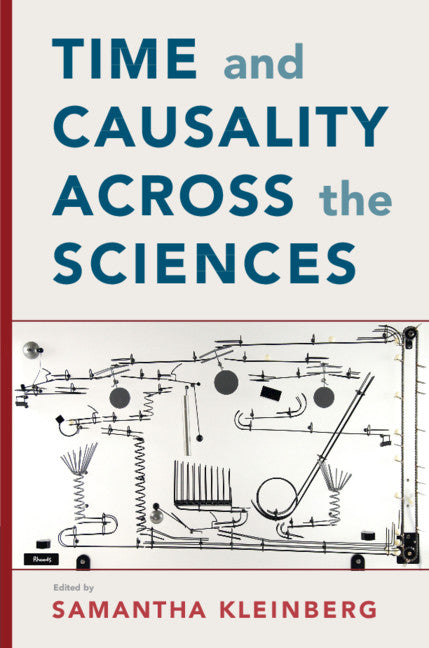Freshly Printed - allow 3 days lead
Couldn't load pickup availability
Time and Causality across the Sciences
Explores the critical role time plays in our understanding of causality, across psychology, biology, physics and the social sciences.
Samantha Kleinberg (Edited by)
9781108476676, Cambridge University Press
Hardback, published 26 September 2019
270 pages, 30 b/w illus.
23.5 x 15.7 x 2 cm, 0.51 kg
'The volume encompasses a wide range of discussions on both metaphysical and epistemological approaches, and chapter authors look at issues across the sciences including physics, biochemistry, psychology, and sociology. Readers will undoubtedly agree that most researchers, including philosophers, who are concerned about causality would benefit from considering how their own approach compares with those of other disciplines … the material will be accessible to anyone within the respective sciences. The chapters are well written throughout, each with a good reference list.' E. Kincanon, Choice
This book, geared toward academic researchers and graduate students, brings together research on all facets of how time and causality relate across the sciences. Time is fundamental to how we perceive and reason about causes. It lets us immediately rule out the sound of a car crash as its cause. That a cause happens before its effect has been a core, and often unquestioned, part of how we describe causality. Research across disciplines shows that the relationship is much more complex than that. This book explores what that means for both the metaphysics and epistemology of causes - what they are and how we can find them. Across psychology, biology, and the social sciences, common themes emerge, suggesting that time plays a critical role in our understanding. The increasing availability of large time series datasets allows us to ask new questions about causality, necessitating new methods for modeling dynamic systems and incorporating mechanistic information into causal models.
1. An introduction to time and causality Samantha Kleinberg
2. Causality and time: an introductory typology Bert Leuridan and Thomas Lodewyck
3. The direction of causation Phil Dowe
4. On the causal nature of time Victor Gijsbers
5. Causation in a physical world: an overview of our emerging understanding Jenann Ismael
6. Intervening in time Neil R. Bramely
7. Time-event relationships as representations for constructing cell mechanisms Yin Chung Au
8. Causation, time asymmetry, and causal mechanisms in the social sciences Inge de Bal and Erik Weber
9. Temporalization in causal modeling Jonathan Livengood and Karen R. Zwier
10. Reintroducing dynamics into static causal models Naftali Weinberger
11. Overcoming the poverty of mechanisms in causal models David Jensen.
Subject Areas: Machine learning [UYQM], Data mining [UNF], Philosophy of science [PDA], Probability & statistics [PBT], Social research & statistics [JHBC], Research methods: general [GPS]


